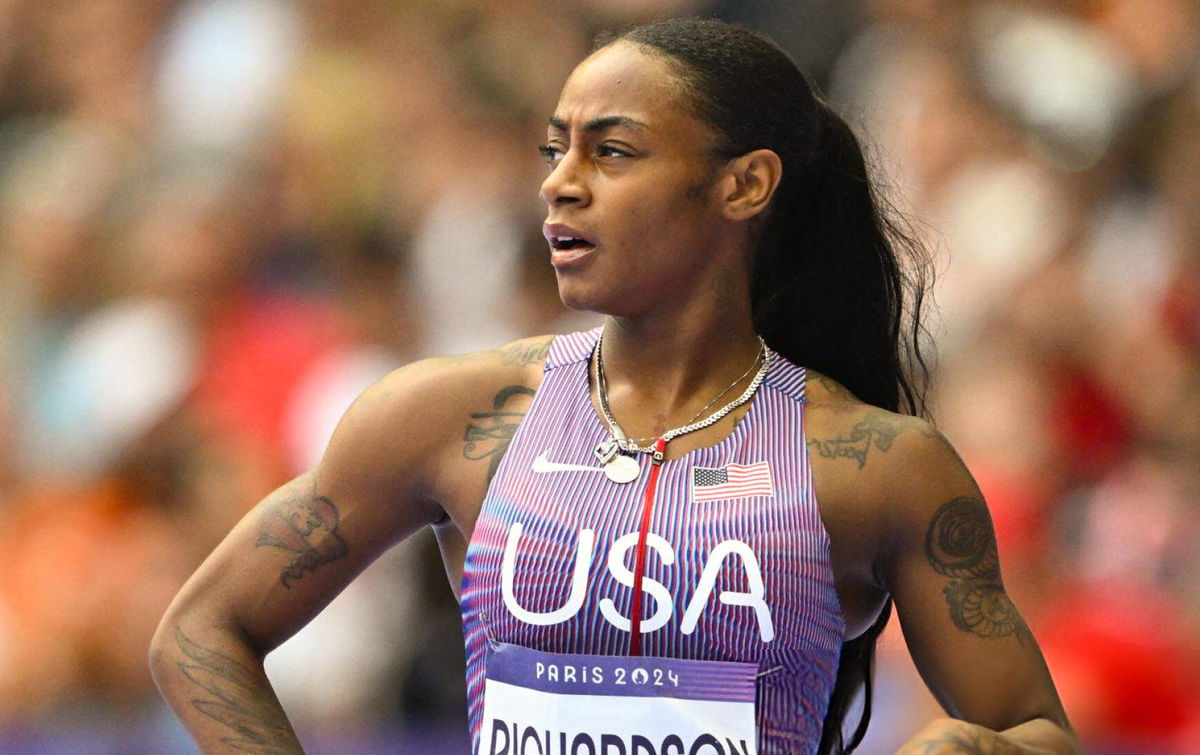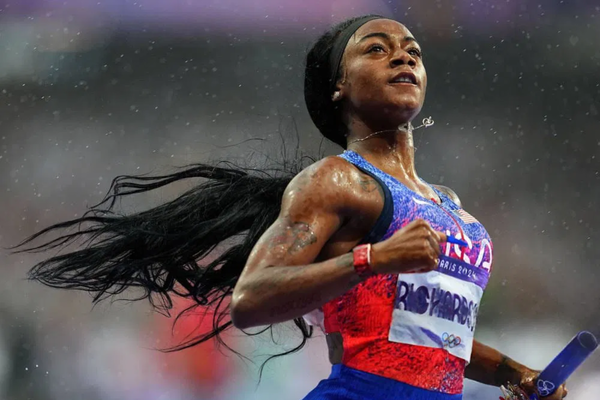
Imago
Source: X

Imago
Source: X
Sha’Carri Richardson’s 2025 campaign has unfolded in unexpected ways, and her place among the sport’s fiercest sprinters has come under sharper focus than ever. A February injury slowed her start, and her early-season results were far from the form that made her a world champion. Yet as she rebuilds her speed and steadiness, her path has been shaped not only by her own resolve but also by pointed advice from one of track’s most experienced voices.
Watch What’s Trending Now!
Her first races of the year made clear how much ground she had lost. In May at the Golden Grand Prix in Tokyo, Richardson crossed the line in 11.47 seconds, her slowest mark since 2021. The Prefontaine Classic brought more disappointment, where she finished last in her heat, explaining afterward that her only aim had been to leave the track without aggravating her injury.
ADVERTISEMENT
The U.S. Championships were no easier: she withdrew from the 100-meter semifinals despite holding a bye to the World Championships as the defending champion, and she missed the 200-meter final by one hundredth of a second. Those results, combined with her arrest in Seattle on a domestic violence charge later dropped when Christian Coleman declined to press charges, left many questioning her readiness for the global stage.
It is in this uncertain stretch that Aaron Brown, Canada’s three-time Olympic medalist, offered his view of what Richardson needs most. While talking to Perdita Felicien for CBC Sports, Brown stated, “I just want to see her put together a complete race, get that start looking a little a little stronger. Go through her phases, just have a complete race, come out healthy.” Brown pointed not to a specific medal count or ranking but to the importance of incremental progress.
ADVERTISEMENT
“If I see anything on the clock that says 10.8 or better, she’s right on track. And even beyond that, I just want to see her beat people, you know, take some names and be competitive, get back, you know, get build that confidence up and get in her groove.” His words underscored the thin margin between crisis and resurgence in sprinting.
ADVERTISEMENT
Sha’Carri Richardson will soon line up at the Brussels Diamond League against her training partner Melissa Jefferson-Wooden, who has surged to the forefront of American sprinting with a national championship double. That test comes before Tokyo, where Richardson holds automatic entry into the 100 meters after her 2023 triumph.
Brown’s counsel resonates with the timing: “That’s all she really needs is a little sliver of of confidence going into Tokyo. You know, she’s been dealing with some stuff off the track. And I want to see that she’s focused, locked in, put together a strong performance that she can build off of, go into Brussels, improve there, and then she’ll be right on track, ready for Tokyo to mix it up with the best because we know she carry out her best is one of the best.”
ADVERTISEMENT

Imago
Credits: IMAGO
For now, Richardson’s season remains defined as much by the setbacks as the opportunities ahead. Her performances have been modest by her own standards, and her off-field incident brought unwelcome scrutiny. Yet with Tokyo approaching and an Olympic medalist calling for steadiness and structure, she holds both the challenge and the chance to reassert herself among the quickest women in the world.
ADVERTISEMENT
Sha’Carri Richardson Breaks Silence With Emotional Apology to Christian Coleman After Her Arrest
Sha’Carri Richardson’s recent weeks have unfolded under a degree of scrutiny that extends far beyond the track. Her arrest on domestic violence charges involving Christian Coleman placed her private life in the foreground, demanding attention at a moment when her professional commitments already carried weight. What followed was not silence, but a deliberate effort to confront the matter with candor. Richardson’s decision to acknowledge her role both publicly and privately revealed the strain of reconciling personal conflict with a career lived under constant observation.
Her first statement, directed toward the wider public, was measured in tone and placed emphasis on accountability. She described the experience as “a lot of self-reflection, a lot of understanding,” and made clear her intention to confront her own behavior. She stressed the importance of “holding myself accountable” and pointed to the need for “a certain level of help that overall is going to reflect who I truly am in my heart and my spirit.” While that message addressed fans and observers, it left unspoken the personal dynamic with Coleman, whose name was absent from her opening apology.
ADVERTISEMENT
That omission was remedied hours later. In an Instagram story, Richardson’s words turned directly toward Coleman, with a level of urgency that reflected both contrition and affection. “I APOLOGIZE TO CHRISTIAN. HE CAME INTO MY LIFE & GAVE ME MORE THAN A RELATIONSHIP BUT A GREATER UNDERSTANDING OF UNCONDITIONAL LOVE… I WAS BLIND & BLOCKED OFF TO NOT ONLY RECEIVE IT BUT GIVE IT.” She closed by admitting, “MY APOLOGIZE SHOULD BE JUST AS LOUD AS MY ACTIONS, HONESTLY LOUDER. TO CHRISTIAN I LOVE YOU & I AM SO SORRY.” In setting out both a general message of responsibility and a personal plea, Richardson sought to navigate a period where her private missteps and her public identity could not be separated.
ADVERTISEMENT
ADVERTISEMENT
ADVERTISEMENT